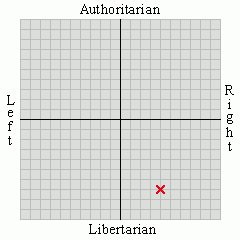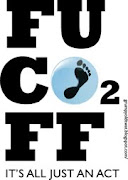Australia's parliament has passed two bills moving the nation closer to becoming the first to introduce plain cigarette packaging in a move Health Minister Nicola Roxon Thursday called "courageous".Well, Nics, if by 'courageous' you're referring to the benefit the illegal tobacco trade will reap because those who counterfeit packaging will have an easier time while those who've always supplied their baccy in plain packaging, all of whom will be hoping to increase their profits and none of whom will pay a cent in tax, then yes, it's very brave indeed. You might go so far as to say it shows enormous balls.
But somehow I don't think she does mean that at all, which makes it less about having balls and more about talking balls.
The plans, which are being closely watched by other countries considering similar policies, have enraged the tobacco giants, who say there is no evidence plain packaging will reduce smoking rates.As will you, Nics, as will you. And not only Nicola Roxon but all the rest of us non-smokers too. You see, the tobacco industry currently puts several billion dollars into the Treasury in tobacco taxes. Now I know that the anti-smoking lobbyist drones claim that smoking kills 15,000 a year and cost $31 billion - one was wheeled out to do so for the linked article - but this is a claim that doesn't stand up to scrutiny. If tobacco costs really were greater than tax revenue by a factor of five or more it's simply inconceivable that the government are not banning smoking outright, and if they believe it then the decision to piss about with plain packaging is financially moronic. I very much doubt they're quite that stupid, so I suspect it's far more likely they're trying to have their cake and eat it because they don't actually believe the $31 billion figure themselves. And they shouldn't, as Christopher Snowdon of Velvet Glove, Iron Fist explains (my emphasis).
They are also concerned it would reduce their profits and see counterfeit products flood the market.
But Roxon said they would have to live with it.
Let's first consider that there are believed to be 15,000 smoking related deaths in Australia every year. If the "medical burden" is $31 billion a year, this means that each person receives over $2,000,000 of treatment. This sounds just a little bit implausible and should have seemed so to the journalist as she typed it out.So the aim of this policy, like most so-called anti-smoking policies the world over, is to keep the Strength Through Joy mob happy by bullying the smokers while at the same time not doing anything that risks too much of the government's tax revenue take. Let's not kid ourselves here, if a $4 billion fall in tax revenue is newsworthy and had the finance minister in front of the cameras to talk about it, losing the baccy tax surplus, which is on the order, would give the government headaches.
And of course it turns out that is not the medical burden. The study that came up that figure accepted—totally contrary to what the hapless hack said—that tobacco taxes exceed the cost to the taxpayerof treating smoking-related diseases:
"Tobacco tax revenue in 2004/05 exceeded tobacco-attributable costs borne by the public sector by over $3.5 billion. Of this surplus $2.7 billion accrued to the Commonwealth and around $800 million to state governments." (p. 72)This same study did indeed come up with a figure of $31 billion, but it did so by including 'costs' that no reasonable person would consider to be costs. Lost productivity both at work and at home gave them an extra $8 billion (p. 64). Aside from the obvious problem of coming up with a suitable cash equivalent for domestic work, all lost productivity figures are questionable because they rely on an assumption that an individual is capable of a set amount of work in a lifetime and that he/she has a duty to fulfill that quota, otherwise they are somehow costing other people money. It's as if someone dies and you have to go round and clean their house for the next ten years. It's a nonsense.
Still more dubious is the remaining $19.5 billion which is made up of 'intangible' costs (p. 65). This relies on the entirely arbitrary valuation of a life at $2 million, or a loss of one year's living of $53,267. This kind of psychological evaluation is practically meaningless and has no place in economics. You might as well say that the value of life is priceless and, therefore, the costs of smoking (or alcohol, or drugs) is infinite.
Worse, the whole $7 bn or so per year would be lost while the costs wouldn't go actually away. They wouldn't go away immediately because if what they claim about the health effects is true even if everyone stopped there'd be people getting smoke related illnesses for years later, and in reality they wouldn't go away at all for precisely the same reason we still have to pay for the health effects of pot, heroin, cocaine, ecstasy, crystal meth, etc. - because people who really want to smoke will be doing it off the grid with tobacco they either buy illegally or produce themselves. Look, cannabis is banned and Aussies are supposedly among the highest users of pot in the world (no pun intended, that's really how it was put) so the health system has all of the costs while the trade provides not a single cent of tax revenue.
As I said earlier, the government may be stupid but it isn't quite that stupid, and so I'm sure it has no desire at all for the same thing to happen with tobacco. However, I think the current Aussie government is in danger of inadvertently pushing things that way anyway by policies that blur the difference between regulated and quality controlled tobacco and the illegal, untaxed, unregulated competition. Ironically I think that might not be bad news for Australia's smokers since I believe more will be encouraged to smoke the much cheaper illegal products - I emphasise that I'm not advocating it, just predicting that it will happen.
That's not courageous but stupid, handing over more control of yet another desirable product to criminals, just as was once done with alcohol in the US and as is the case with all the illegal recreational drugs that people still want to use today and which have never had any trouble keeping existing customers or finding new ones. Not the intent, to be sure, but the fact that Nicola Roxon didn't refute this but instead said the tobacco companies will have to live with it means they are aware of the possibility. And yes, I do believe that governments can be that stupid.


















